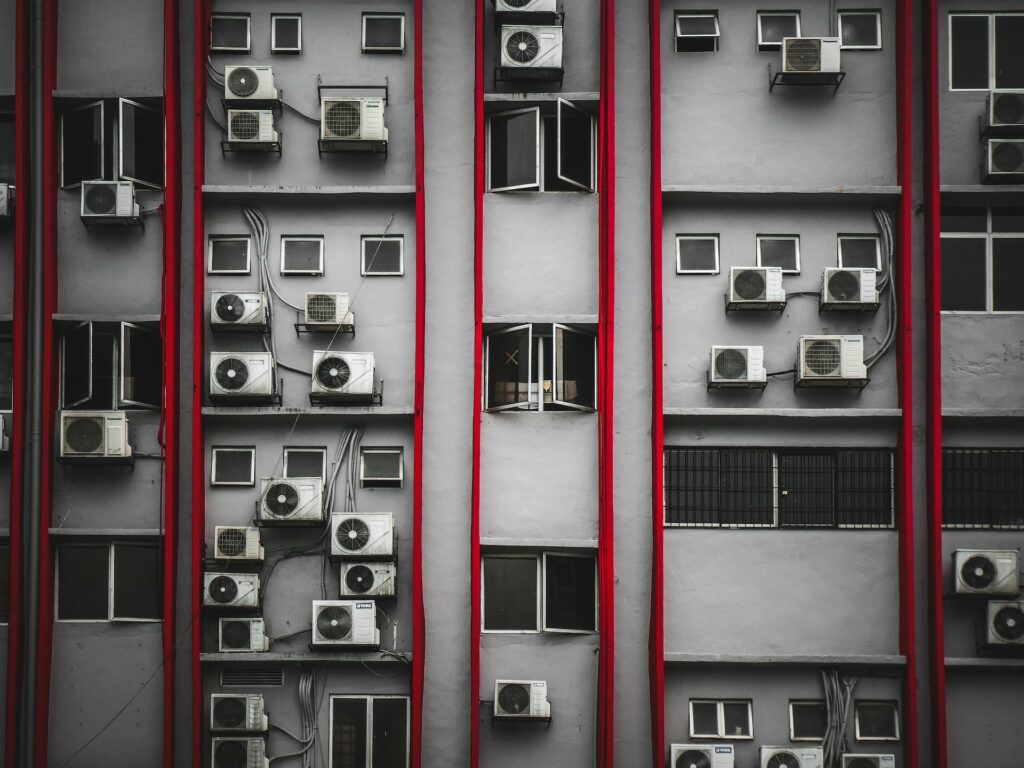
The Philippines is a tropical country, so the summers here can be quite brutal. Aside from the intense heat, many Filipinos also have to deal with high levels of humidity. The latter can hinder the body’s ability to cool itself and leave you feeling sticky and overheated for a good portion of the day. This can be bad for business, as heat is a potent productivity killer. Overheated employees may find themselves with low energy levels that make it difficult to focus on their work, while uncomfortable customers will not likely wish to stay for too long inside a warm store. Thus, investing in reliable cooling solutions for your office and other commercial spaces can be a beneficial move for your business.
There are plenty of options that you can explore for cooling your office or store this summer, and one of these is purchasing appliances that are dedicated to maintaining the temperature in a room. Often, this choice comes down to choosing between an air conditioner and an air cooler. While both are effective cooling solutions, the best option is the one that matches your business needs. Here’s how you can see if it makes more sense to buy air cooler online or if you’re better off spending your money on an air conditioner.
Understanding How Air Coolers and Air Conditioners Work
Before setting your heart on an air cooler or an air conditioner model, it’s important to know exactly how these appliances work. An air cooler may seem very similar to an aircon, but there are a few key differences in how they function. While they share the same end goal—that is, to bring down the indoor temperature—these two appliances achieve this effect in different manners.
This is quite obvious by observing the key components of an air cooler, which is also sometimes called an evaporative cooler. The appliance has three main components: a fan, a water tank, and an absorbent pad. The air cooler blows air through the water-soaked pad to reduce the temperature in the room. This works as intended, but it can also raise the humidity levels in enclosed spaces. In the long run, the rising humidity levels can make the room feel stickier and hotter than it already is.
Meanwhile, air conditioners are presented as more sophisticated devices. There are different makes and models of air conditioners, but in general, this appliance features an evaporator coil, a condenser coil, a compressor, and an expansion valve. The compressor pressurizes the liquid refrigerant, or the fluid that readily absorbs heat from the environment, while the expansion valve regulates the flow of the refrigerant into the evaporator.
The evaporator and compressor coils, respectively, receive the refrigerant and facilitate the transfer of heat. The cool side of the air conditioner features the evaporator and a fan that blows cooled air into the room, while the other components except for the expansion valve are usually found on the hot side of the appliance.
A Quick Look at the Pros and Cons of Each Appliance Type
Apart from the differences in how they operate, there are also different pros and cons to investing in either an air conditioneror an air cooler. Here’s a quick overview of what to expect from each appliance, so you can better determine the right option for your needs:
Air Cooler Pros and Cons:
- It’s more affordable compared to air conditioners.
- It’s easy to install, clean, and maintain.
- It consumes less energy and is cheaper and more eco-friendly to run.
- Its cooling capacity is limited to reducing only 5 degrees Celsius from the original temperature.
- Its water tank must be topped up once it runs out of water.
- It increases humidity levels as it cools the room.
- It requires continuous air circulation in the room to eliminate the excess humidity.
Air Conditioner Pros and Cons:
- It is capable of cooling a room down to as low as 14 degrees Celsius.
- It can reduce humidity in the room as it brings down the temperature.
- It can be a challenge to install if the room doesn’t have a built-in slot for a window-type aircon, or if you choose a split-type aircon that requires professional installation.
- It can be quite pricey, depending on the features of the model.
- It consumes more electricity compared to air coolers.
- It requires regular professional cleaning and maintenance.
- The use of certain refrigerants can contribute to climate change.
If you have the budget and you want to create a cool and comfortable indoor environment that allows people to focus on their tasks, then the air conditioner is a clear option. With such an appliance in your shop or office, you can rest assured that everyone can feel relaxed and unbothered by the heat, even at the peak of the summer season.
If you have an indoor space with plenty of windows for ventilation, however, then an air cooler may be a more practical choice. It should be an adequate solution for keeping a cool breeze circulating in the area without raising your energy consumption. Keeping these considerations in mind will help you make the best possible purchase for your business.
About FAQ
FAQ.ph stands for Facts, Answers and Questions about the Philippines. It is an online place where you can read interesting facts, useful answers and frequently asked questions about our country, its places, events and people. Our mission is to share stories that will help Filipinos and the world gain knowledge about everything in the Philippines, including its beautiful spots, rich history, unique society, and solutions towards the nation’s progress.
Leave a Reply